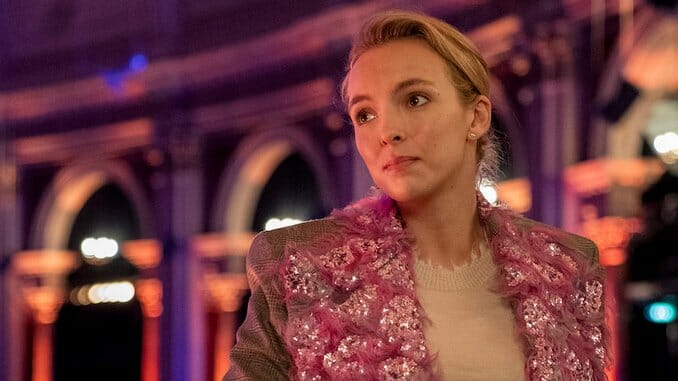The Killing Eve Season 3 Finale Was an Utter Letdown
Photo Courtesy of BBC America
Here’s the thing about Killing Eve. Do I enjoy spending time in its world? I do. Do I love its cast? Absolutely. Is it fun to watch? Usually. After watching the first half of the season, which included my favorite episode (Villanelle returning to Russia), I gave a positive review. Because sure, though Eve didn’t have as much of a role and narratively things were treading water, the bottom line for me was that it continued to be a fun show with a glossy, immersive world that I was once obsessed with but still enjoy. What’s not to like?
![]()
The problem is that as Killing Eve has continued, it has taken fewer and fewer risks. The examples in this season were glaring, and exacerbated in the finale. I defended Niko through two seasons, but no more—he should have been killed by Dasha. And Dasha should have been killed the first time. What point did her hospital scene serve? What did Niko’s? We know Eve feels guilty about him getting hurt and her essentially ruining his life. We didn’t need the show to save him to feel that.
There was still a chance in the finale that things could be put to rights. Though the show had ostensibly neutered Konstantin into a grouchy teddy bear, the revelation that he murdered Kenny (or was at least there when Kenny died) was a potential upending of that trajectory. Perhaps we didn’t know him as well as we thought, and now Carolyn can have her justice, or there will be something revealed about this organization and the mysterious Twelve that pulls everything together.
Instead, the show took the biggest copout possible. Not only did Konstantin beg and plead that it was an accident, Carolyn spares him and kills (as Eve notes) the only person with answers. Carolyn gives a typically cryptic reply about never being able to stop the Twelve, and that Eve should give it up. That’s the show speaking there: There was never a good answer for the Twelve, and we’re being told to stop caring about it so they can move on.
-

-

-

-

-

-

-

-

-

-

-

-

-

-

-

-

-

-

-

-

-

-

-

-

-

-

-

-

-

-

-

-

-

-

-

-

-

-

-

-








































